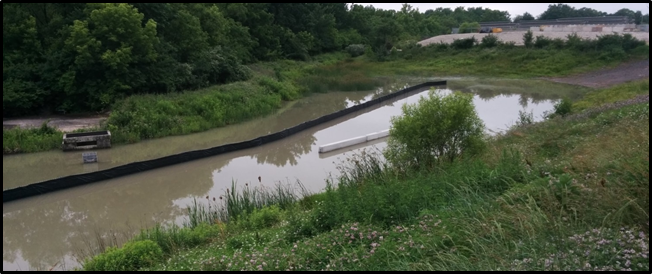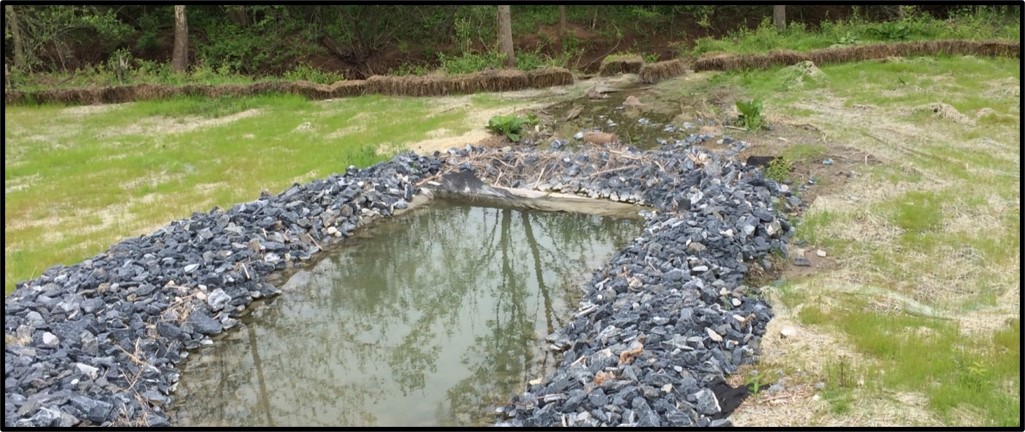High Companies: Safety and Quality Control Measures for Stormwater

In the realm of construction, steel fabrication, precast concrete production, and transportation, pollutants, and sediment after rainfall are prominent. In urban and developed areas, impervious surfaces prevent water from soaking into the ground, which can lead to flooding, erosion, or infrastructure damage. We train our employees to adopt the best standards and processes to improve water quality, environmental health, and safety. Solid teamwork and a deep understanding of the best management practices help us maintain outstanding sanitation standards and ensure that our employees work under the safest conditions.
Stormwater’s Impact on Our Plants
Stormwater is a major concern when operating plants of the size that High operates. Stormwater is precipitation (typically rain or snowmelt) that flows over land instead of percolating in the ground. This runoff can carry toxic substances to local rivers, beaches and overwhelm plant and fish habitats. An inch of rain falling on an acre of land is equivalent to 27,154 gallons of water and weighs 113 tons. That’s powerful! Each of High’s five manufacturing plants is several acres in size and is responsible for the cleanliness of the thousands of gallons of stormwater entering the local streams and rivers.
When the rainwater hits the ground, some trickles into groundwater aquifers while the rest flows over the surface to lakes, streams, and rivers. This water then becomes our drinking water. About 77 percent of the freshwater used in the U.S. comes from surface-water sources. The most important uses are drinking water and farming. Sometimes, we fail to be conscious enough to keep our water clean for important uses, such as drinking, supporting our natural habitats and wildlife, and recreational purposes.
As the stormwater flows over the land, it collects pollutants such as sediment, oil, grease, fertilizers/pesticides, litter, and trash. This stormwater, if left untreated, will carry these pollutants into the streams and rivers and eventually into the water sources.
Spearheading a Project to Treat Stormwater

In 2018 High Concrete Group Denver invested $250,000 to modify their largest stormwater basin to properly remove the silt from the collected stormwater. The project includes deepening the basin, modifying the outlet, and adding additional wetland plants. Once these changes are complete, the stormwater will be collected and treated so that HCG can continue to improve the quality of the stormwater being discharged into Stoney Run.
At both the High Steel Structures’ plants, several practices were implemented to treat or improve the stormwater leaving the sites. Both plants apply a synthetic dust control product to all the stoned drive isles. These products greatly reduce the amount of dust emitted to both the air and picked up by any stormwater. Other practices include placing filters in the storm drains to filter any sediment. All these management practices are verified through monthly inspections. Each of the five plants is inspected by co-workers located at the site and by High’s Environmental Specialist.
Another important aspect of maintaining an environmentally safe plant is training. Annually, co-workers are trained to identify situations that might result in oil/grease, pesticides, and trash being discharged into the stormwater. This might include inspecting mobile equipment for leaks or collecting trash from the storage yards.
As illustrated, High has adopted many management practices so that each plant remains in compliance with their federal and state requirements and reduces the impact on the environment and water quality. If you’re considering a career with High, you will experience innovation and safety training from the very beginning! Our vision of a greener tomorrow is guided by our continuous efforts to preserve our most valuable environmental resources.
- Scott W.

Scott W. is the Environmental Specialist for High Companies.
